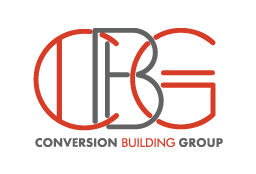
Strategic Scheduling in Construction Projects: Why It Matters for Success?
In the fast-paced world of construction, every detail plays a vital role. However, one of the most critical factors for success is strategic scheduling in construction projects. Without a structured schedule, even skilled teams and advanced resources may face delays, cost overruns, and unsatisfied clients.
Therefore, adopting a strategic approach ensures smoother execution, better collaboration, and stronger outcomes.
What Is Strategic Scheduling in Construction Projects?
Strategic scheduling goes beyond simply assigning start and end dates. Instead, it creates a comprehensive roadmap that aligns resources, timelines, and dependencies. Moreover, it considers labor availability, material delivery, weather conditions, and subcontractor coordination to ensure seamless progress.
In other words, strategic scheduling acts as the blueprint for effective time management in construction projects.
Why Strategic Scheduling Is Important
There are several reasons why this process is essential. For example:
- Reduces Delays: Careful planning minimizes risks such as material shortages or labor conflicts. As a result, projects stay on track.
- Controls Costs: Delays often increase expenses. However, strategic scheduling ensures resources are used efficiently, lowering waste.
- Improves Productivity: When roles and timelines are clear, teams work more effectively.
- Enhances Client Satisfaction: On-time delivery builds trust and strengthens a company’s reputation.
Key Elements of Strategic Scheduling
To maximize results, strategic scheduling includes several important elements:
- Task Breakdown: Dividing the project into smaller, manageable steps.
- Resource Allocation: Ensuring the right people, equipment, and materials are available when needed.
- Critical Path Method (CPM): Highlighting essential tasks that directly affect timelines.
- Risk Assessment: Preparing for challenges such as supply chain disruptions or bad weather.
- Technology Integration: Using modern tools such as scheduling software or drone photography for updates.
Consequently, these elements work together to create a realistic and flexible schedule.
How Strategic Scheduling Benefits Construction Companies
At Conversion Building Group, we have witnessed how strategic scheduling of construction projects transforms outcomes. For instance, our approach:
- Keeps stakeholders consistently informed and aligned.
- Prevents costly mistakes, which means less need for project recovery.
- Ensures compliance with both safety and regulatory standards.
- Supports smarter, faster decision-making through accurate timelines.
In addition, clients benefit from improved communication, better planning, and stronger overall project success.
Conclusion
In construction, time is money, and strategic scheduling ensures neither is wasted. By following a structured scheduling process, companies can deliver projects on time, within budget, and at the highest level of quality.
Therefore, if you are looking for reliable support in construction management, project recovery, or strategic scheduling of construction projects, the team at Conversion Building Group is here to help.
📞 Contact us today to streamline your next project.
